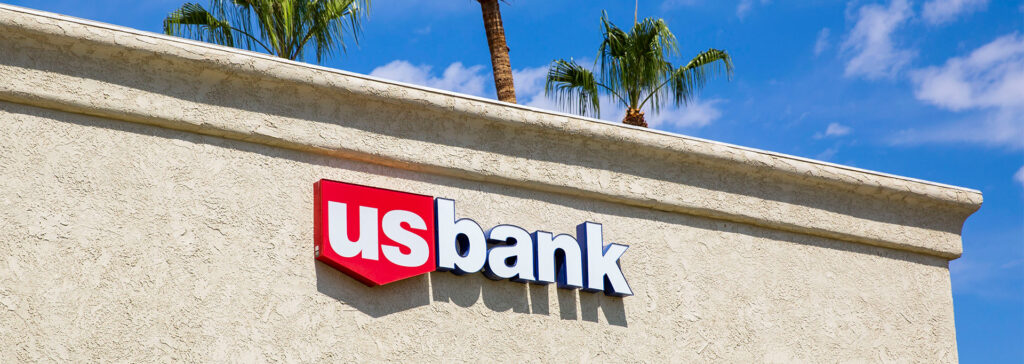Top CD Rates
A certificate of deposit (CD) is a unique banking product: In exchange for locking up your money for a set period, you can lock in a relatively risk-free interest rate on your deposit.
CDs can have maturities ranging from as little as 30 days to as much as 10 years, though most banks and credit unions typically offer between one and five years, which means they’re generally best if you have money you don’t need during the life of the account. While you may be tempted to open a CD with the bank or credit union you already use, you may end up getting a subpar rate in return.
Synchrony Bank CDs
Synchrony Bank offers a lot of flexibility with no minimum opening balance, and the online bank also offers a couple of other options. Its no-penalty CD allows you to withdraw your money before maturity without incurring a penalty, and its bump-up CD allows you to request a rate increase once during its 24-month term if market interest rates go up.
Capital One 360 CDs
Capital One’s no minimum balance makes its CDs accessible to anyone who wants to set aside some cash for the future. Also, its penalties for early withdrawal aren’t as punitive as some of the other CDs on our list.
Discover Bank CDs
Discover offers the widest range of maturities on our list, with options ranging from three months to 10 years. This makes it easier to take advantage of CD laddering, which involves spreading your deposits across accounts with varying maturities so you can enjoy the higher rates with longer terms without locking up all of your money for so long.
That said, the interest rate is the same on a number of the longer terms. As a result, it might not make sense to go for a longer maturity if you’re not getting compensated for it, especially because the longest maturities have the most punitive early withdrawal penalties. Finally, Discover has one of the largest minimum balance requirements on our list.
Marcus by Goldman Sachs High-Yield CDs
One feature that sets Marcus apart from the competition is its 10-day rate guarantee. As long as you have the minimum opening deposit in the account within 10 days, you’ll receive the highest published rate during that period for your CD’s maturity.
CIT Bank Term CDs
Anyone looking for a secure way to earn interest on their money in the short term should consider CIT Bank’s certificates of deposit. While many banks require customers to keep their funds deposited for multiple years to earn the highest interest rates, CIT Bank takes the opposite approach by incentivizing customers to open short-term CDs with high rates.
While CIT Bank’s CD rates drop off significantly at the 2-year term mark, its 13-month CD earns 3.50% APY, which is better than many of the best 3-year CD rates on the market.
CIT Bank’s term CDs are a good choice if you have at least $1,000 to deposit and you don’t need to access your money for at least six months. Anyone who’s saving up for a vacation, down payment or other goal that isn’t right around the corner will do well to consider keeping their money in a CD.
Quontic Bank CDs
Quontic Bank’s CD rates are competitive, and the minimum deposit required is slightly lower than some of its top competitors. However, you should only consider Quontic CDs if you’re sure you can keep the money in your account until it reaches maturity. If not, you’ll be faced with harsh penalties, such as having to pay 12 months’ worth of interest for a 1-year CD you opened less than a year prior.
How Do CDs Work?
A certificate of deposit is a relatively risk-free deposit account that can offer a higher rate than some other savings accounts. The annual percentage yield (APY) on a CD is usually fixed, which means it won’t change for the term of the CD. In exchange for a higher-than-average interest rate, you agree to keep your deposit in the account for the CD term length (called its “maturity”), which can take three months to 10 years in most cases. If you withdraw funds before the account reaches maturity, you’ll usually be charged an early-withdrawal penalty fee, which can sometimes wipe out any interest you’ve earned, so it’s not advisable.
Here are the basics of how CDs work:
- Set term length: You typically can’t touch the money for entire the CD term, and this includes both withdrawing or depositing funds.
- Fixed interest rate: The APY on your CD typically won’t change, which can be good if rates fall during that time, but you might miss out on higher rates if the market moves that way.
- Fees: Always check the fee schedule for any bank account, but the main one to know for CDs is that you’ll almost certainly face a penalty fee if you withdraw funds before your CD matures.
- Very little risk: CDs at FDIC-insured banks have very little risk, and the same is true for NCUA-insured accounts at credit unions. You also won’t face the unpredictability of an investment account because your interest rate is guaranteed.
Quick Tip
Some banks offer no-penalty CDs, which let you withdraw your money early for free. Most accounts still have some restrictions on withdrawals, though, and you’ll need to shop around to look for a no-penalty CD with competitive rates.
What to Look for in a Certificate of Deposit
Reviewing the highest CD interest rates can help you determine where to stash your money for the long term. However, finding the best APY available is just one piece of the puzzle. And remember, different CD terms have different rates.
When you’re looking to find the right CD for you, keep these features in mind:
- APY: Other perks, like convenience and customer service, may play a role in your decision, but you’ll want to compare APYs as you shop around. The higher the APY, the more money you’ll earn in interest, so this is a big factor.
- Term flexibility: Look at the term lengths offered so you can decide what’s right for your situation. Some banks offer just a few options, while others have terms ranging from a few months to many years. This variety also comes in handy if you want to build a CD ladder.
- Fees: Many CDs have no recurring monthly maintenance fees, but they may have fees for other account activities. As you shop around, make sure you look at fee schedules to avoid unnecessary costs.
- Minimum deposit: Just because you have enough money to fund a CD doesn’t mean you want to lock up that much cash. Look for CDs with low or no minimum deposits to keep your options open.
- FDIC insurance: Always look for CDs that have FDIC insurance to protect your deposit. Typically, banks have FDIC insurance up to $250,000 per deposit, per account type. Credit unions have similar insurance through the National Credit Union Administration.
- Early withdrawal penalty: Most banks charge a fee if you pull your money before your CD term ends. This could negate any interest earned or even eat into your principal balance. If you think you might need your money sooner, consider a no-penalty CD or high-yield savings account instead.
- Compound interest: Interest on CDs is compounded daily or monthly, or sometimes quarterly. Compound interest allows you to earn interest on your initial deposit plus the interest you’ve already earned. You’ll earn more with daily compounding because the amount you can earn on grows every day.
- Other benefits: Some banks offer specific features, like bump-up CDs or 10-day rate guarantees that could help you narrow your list of options. Or if you like having many banking services under one roof, check out what else the bank you’re considering offers.
Who Should Get a CD?
You may want to get a CD if you have a chunk of cash you’d like to invest and know you won’t need to touch it for a period of time. People may also want to get a CD if they find a high APY and want to lock it in for the length of a CD term.
Who Shouldn’t Get a CD?
A CD may not be the right fit for everyone.
Here are some scenarios where you might be better off with a different account type:
- You want more flexibility in accessing your money.
- You don’t want to lock in a fixed APY (possibly because you suspect rates may rise in the near future).
- You can get higher APYs elsewhere (like in a high-yield savings account) and don’t mind the risk of a variable APY.
- You prefer to take a higher-risk approach and invest long-term in the stock market.
CDs have their pros and cons, so it’s important to consider all their features to decide if they are the right investment product for you.
FAQs
-
A certificate of deposit, also called a CD is a type of bank account where you park your money for a set period of time (typically three months to 10 years), and in exchange you earn interest at a guaranteed rate the entire time. In most cases, if you pull your funds early, you’ll get hit with a penalty fee, but the benefit of a CD is that you know how much interest you’ll earn, unlike with a savings account where the APY can change over time.
-
A CD ladder is a savings strategy that involves spreading money across multiple CDs instead of putting all of it into one. If you have $10,000 to save, instead of putting it all in a five-year CD, you might put $2,000 in a one-year CD, $3,000 in a three-year CD, and $5,000 in a five-year CD.
This way, you can take advantage of higher yields with long-term CDs without needing to lock up all of your money for a longer period of time.
-
If you have a CD with a bank that’s a member of the Federal Deposit Insurance Corporation (FDIC), then your funds are FDIC insured. This means that if the bank fails, your funds are insured by the federal government for up to $250,000 per depositor, per insured bank, per account ownership category.
CDs offered by federal and state-chartered credit unions have similar insurance coverage through the National Credit Union Administration.
-
The interest you earn depends on the APY, the term of the CD and how often the bank or credit union compounds the interest, such as daily, monthly or quarterly.
If you’re thinking about getting a CD, use an online CD interest calculator to get an idea of how much you can earn during the period. And make sure the interest rate offered is significantly higher than competing high-yield savings accounts, otherwise the CD you’re looking at may not be worth it.
-
There are both fixed- and variable-rate CDs available, but most have fixed rates. With a fixed option, your interest rate stays the same until the CD matures (until the term ends). With a variable rate, it can fluctuate over time.
-
Both CDs and savings accounts are safe as long as your bank is FDIC insured, which protects your deposits up to $250,000 per depositor, per insured bank, per account ownership category. Credit unions have similar protection through the National Credit Union Administration.
A CD may have slightly less risk than a savings account in that its APY is fixed. That means the interest rate on a CD will not change during its term. The interest rate on a savings account, however, is variable, which means it can go up or down at any point.
-
Yes, you are required to pay taxes on interest you earn on a CD. The IRS typically considers interest as regular taxable income, unless you’ve put your money in a retirement IRA CD, which has different rules. Usually, your bank will issue you a 1099-INT form at tax time that shows how much interest you earned. If you don’t get the form in the mail, check your online account—you can usually find them in there a couple months ahead of the tax deadline.
-
Five-year CDs are worth it if you find an APY you like and you know you won’t need those funds for at least five years. Some people prefer savings accounts because they can withdraw money if needed, and others prefer to invest if they know they won’t touch the money for several years. The decision is personal and depends on your risk tolerance, along with your needs and intentions for your cash.
-
The main catch with putting money in a CD is that you can’t withdraw it during the CDs term without facing a penalty fee. The other thing to be aware of is that your APY is fixed—so if interest rates go up while your money is locked in a CD, you won’t be able to take advantage of those rates.
-
It depends, but if you have a set amount of money you want to save for a short period, a single CD might be better. If you plan to keep funds in a CD for a while and want some flexibility, it might be better to have multiple CDs, specifically with a CD ladder.
A CD ladder involves putting money in multiple CDs that mature at different times. The advantage is your money is freed up at various intervals if you need it, and at the end of each CD term, you can taking your savings—including interest earned—and reinvest it in another CD.










